Toyota Yaris Cross vs VW ID.4 - Differences and prices compared
Compare performance (130 HP vs 340 HP), boot space and price (23700 £ vs 34600 £ ) at a glance. Find out which car is the better choice for you – Toyota Yaris Cross or VW ID.4?
Costs and Efficiency:
Price and efficiency are often the first things buyers look at. Here it becomes clear which model has the long-term edge – whether at the pump, the plug, or in purchase price.
Toyota Yaris Cross has a clearly advantage in terms of price – it starts at 23700 £ , while the VW ID.4 costs 34600 £ . That’s a price difference of around 10881 £.
Engine and Performance:
Power, torque and acceleration are the classic benchmarks for car enthusiasts – and here, some clear differences start to show.
When it comes to engine power, the VW ID.4 has a clearly edge – offering 340 HP compared to 130 HP. That’s roughly 210 HP more horsepower.
In acceleration from 0 to 100 km/h, the VW ID.4 is clearly quicker – completing the sprint in 5.40 s, while the Toyota Yaris Cross takes 10.70 s. That’s about 5.30 s faster.
Space and Everyday Use:
Cabin size, boot volume and payload all play a role in everyday practicality. Here, comfort and flexibility make the difference.
Both vehicles offer seating for 5 people.
In curb weight, Toyota Yaris Cross is clearly lighter – 1180 kg compared to 1975 kg. The difference is around 795 kg.
In terms of boot space, the VW ID.4 offers evident more room – 543 L compared to 397 L. That’s a difference of about 146 L.
When it comes to payload, VW ID.4 barely noticeable takes the win – 551 kg compared to 510 kg. That’s a difference of about 41 kg.
Who wins the race in the data check?
The VW ID.4 sits well ahead of its rival in the objective data comparison.
This result only shows which model scores more points on paper – not which of the two cars feels right for you.
Costs and Consumption
View detailed analysis
Engine and Performance
View detailed analysis
Dimensions and Body
View detailed analysis
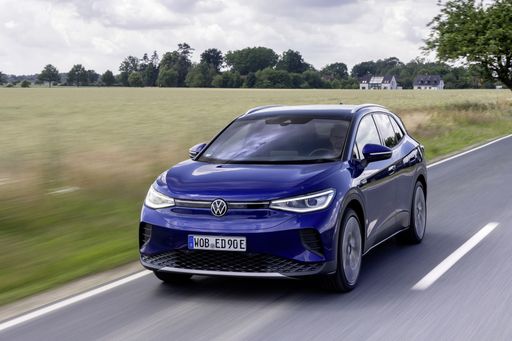
VW ID.4
Toyota Yaris Cross
The Toyota Yaris Cross takes the jaunty personality of the Yaris and gives it a taller stance and a bit more practicality, so you get city-friendly agility with added SUV presence. It’s easy to live with, economical on the daily grind, and smartly packaged — a sensible pick for buyers who want fuss-free transport with a touch of character.
details






VW ID.4
The VW ID.4 is a calm, roomy electric SUV that turns everyday driving into a quietly confident experience, its practical packaging and smooth manners tailored perfectly for family life. Volkswagen's solid build and intuitive interior tech mean you get electric practicality without the sci‑fi theatrics, making the ID.4 a sensible, surprisingly likable choice for most buyers.
details
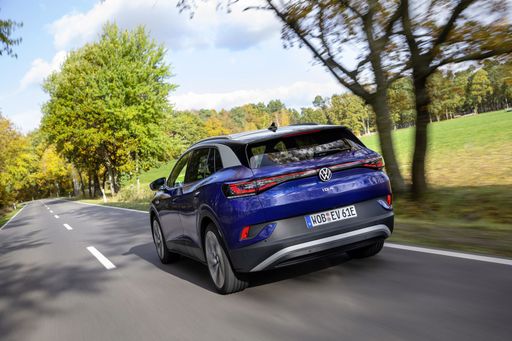
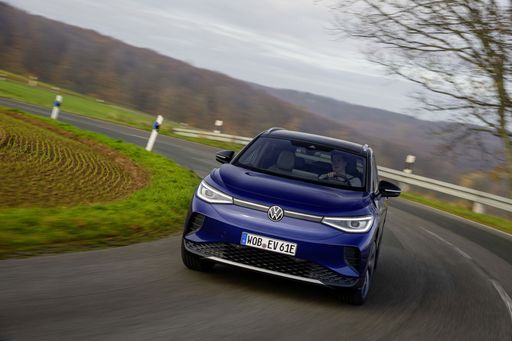
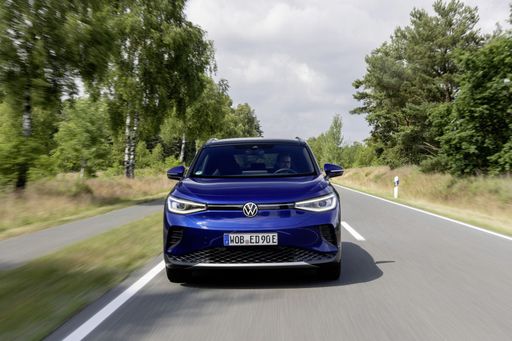
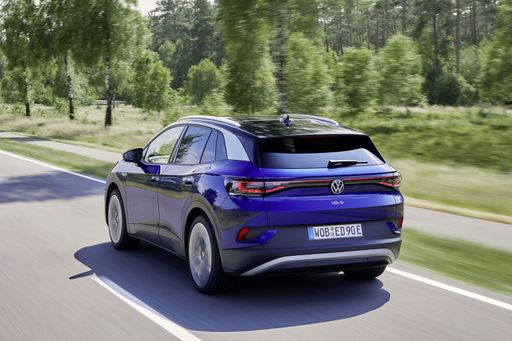

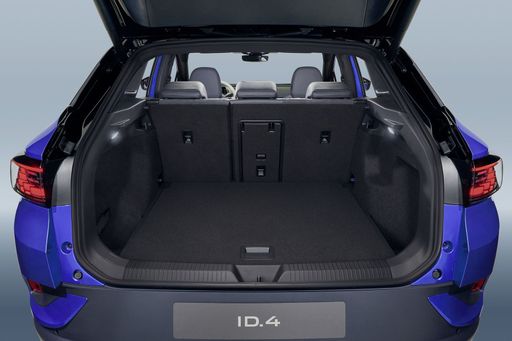
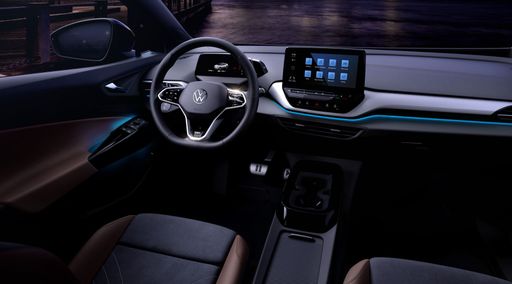
Costs and Consumption |
|
|---|---|
|
Price
23700 - 34300 £
|
Price
34600 - 47200 £
|
|
Consumption L/100km
4.5 - 4.8 L
|
Consumption L/100km
-
|
|
Consumption kWh/100km
-
|
Consumption kWh/100km
15.6 - 17 kWh
|
|
Electric Range
-
|
Electric Range
356 - 569 km
|
|
Battery Capacity
-
|
Battery Capacity
52 - 77 kWh
|
|
co2
101 - 108 g/km
|
co2
0 g/km
|
|
Fuel tank capacity
-
|
Fuel tank capacity
-
|
Dimensions and Body |
|
|---|---|
|
Body Type
SUV
|
Body Type
SUV
|
|
Seats
5
|
Seats
5
|
|
Doors
-
|
Doors
5
|
|
Curb weight
1180 - 1290 kg
|
Curb weight
1975 - 2248 kg
|
|
Trunk capacity
320 - 397 L
|
Trunk capacity
543 L
|
|
Length
-
|
Length
4582 - 4584 mm
|
|
Width
1765 mm
|
Width
1852 mm
|
|
Height
-
|
Height
1619 - 1634 mm
|
|
Max trunk capacity
-
|
Max trunk capacity
1575 L
|
|
Payload
485 - 510 kg
|
Payload
515 - 551 kg
|
Engine and Performance |
|
|---|---|
|
Engine Type
Full Hybrid
|
Engine Type
Electric
|
|
Transmission
Automatic
|
Transmission
Automatic
|
|
Transmission Detail
CVT
|
Transmission Detail
Reduction Gearbox
|
|
Drive Type
Front-Wheel Drive, All-Wheel Drive
|
Drive Type
Rear-Wheel Drive, All-Wheel Drive
|
|
Power HP
116 - 130 HP
|
Power HP
170 - 340 HP
|
|
Acceleration 0-100km/h
10.7 - 11.3 s
|
Acceleration 0-100km/h
5.4 - 9 s
|
|
Max Speed
-
|
Max Speed
160 - 180 km/h
|
|
Torque
-
|
Torque
310 - 679 Nm
|
|
Number of Cylinders
3
|
Number of Cylinders
-
|
|
Power kW
85 - 96 kW
|
Power kW
125 - 250 kW
|
|
Engine capacity
1490 cm3
|
Engine capacity
-
|
General |
|
|---|---|
|
Model Year
2026
|
Model Year
2023 - 2025
|
|
CO2 Efficiency Class
C
|
CO2 Efficiency Class
A
|
|
Brand
Toyota
|
Brand
VW
|
Is the Toyota Yaris Cross offered with different drivetrains?
Available configurations include Front-Wheel Drive or All-Wheel Drive.
